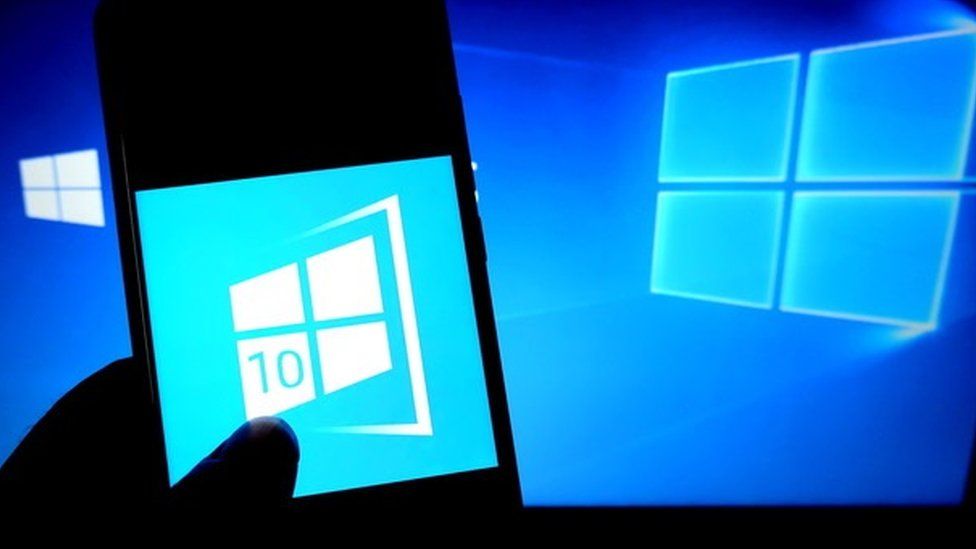Microsoft says it will stop supporting Windows 10 in 2025, as it prepares to unveil a major revamp of its Windows operating system later this month.
When Windows 10 was launched, Microsoft said it was intended to be the final version of the operating system.
But from 14 October 2025, there will be no new updates or security fixes for either the Home or Pro versions.
And Microsoft says its successor will represent one of the “most significant updates” to the OS in the past decade.
Its predecessor, Windows 7, was retired in 2020, although businesses could pay Microsoft to continue receiving updates for Windows 7 Professional and Windows 7 Enterprise.

Windows 10 was released in July 2015 and dubbed “Windows as a service”, which meant the software was gradually updated at no extra charge, rather than the company releasing a new version of its OS every few years.
At the time, chief executive Satya Nadella said it marked a “new era” for personal computing.
Developer evangelist and Microsoft employee Jerry Nixon went further, describing it as “the last version of Windows”.
And Mr Nadella added he was particularly “excited” by features such as digital personal assistant Cortana, which was intended to compete with Apple’s Siri.
But Cortana never really took off and in April this year it was retired on mobile, focusing instead on productivity help in Windows 10, Outlook and Teams.
Also:
- A month after Windows 10’s release, many popular webcams stopped working, with Microsoft having to patch a bug in the way Windows encoded video
- Hundreds of users complained they lost files and their emails no longer synced, and reported issues with broken wi-fi connections and printing
- According to consumer watchdog Which?, some users had to pay for their computer to be repaired, while others said they felt “nagged” to upgrade by the regular alerts
- A year after its release, the French data authority said Windows 10 gathered an excessive amount of personal data on users
Mr Nadella and chief product officer Panos Panay will launch the new OS at a virtual event on 24 June, with Microsoft now facing stiff competition not just from Apple but also from Google.
While PC sales still dominate – 79.4 million shipped in 2020, according to Gartner – Google’s alternative is proving popular, with 11.7 million Chromebooks, which run on Google’s Chrome OS, shipping in the same timeframe.
Some commentators suggest the new OS will be given a name rather than numbered 11.
Rebranding rumours aside, it is likely to include a host of new features, a more modern look and a redesigned Start menu.


